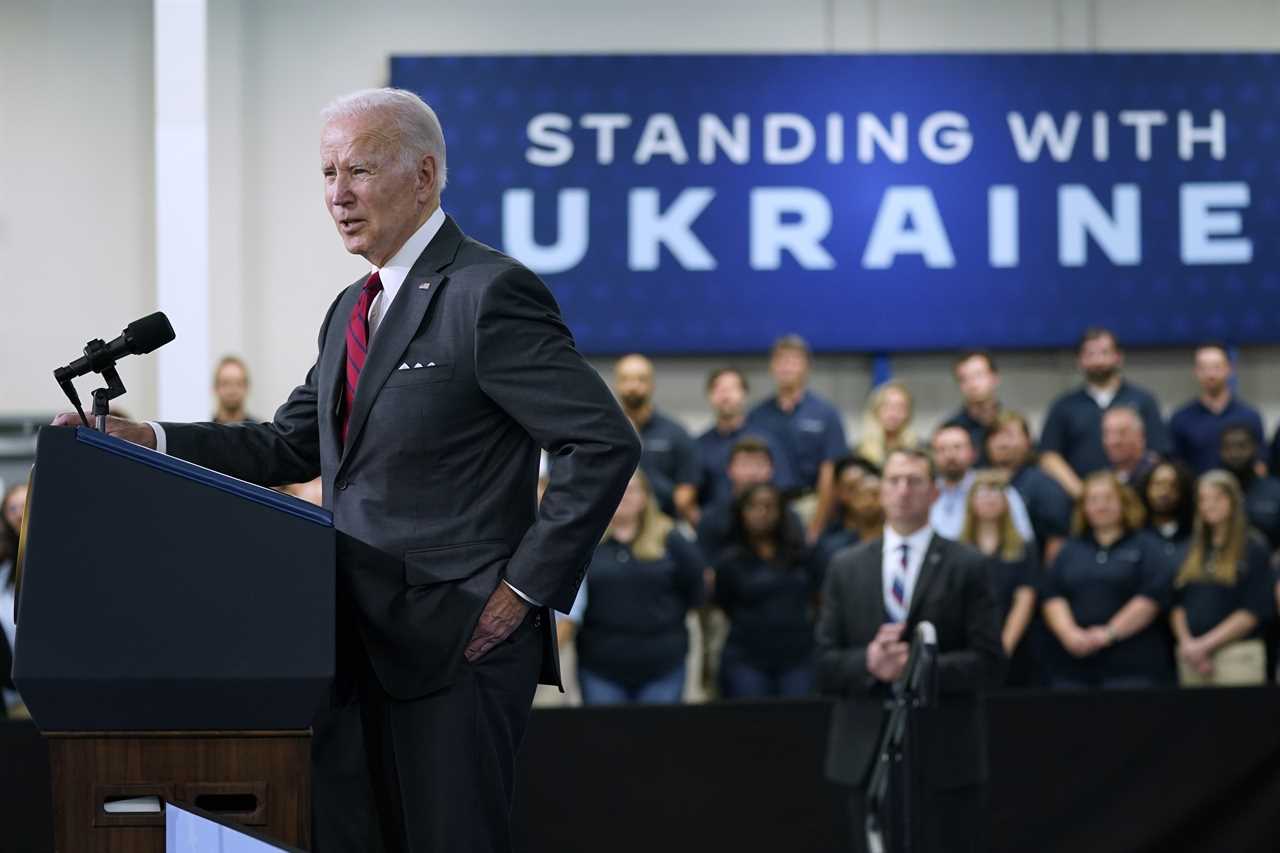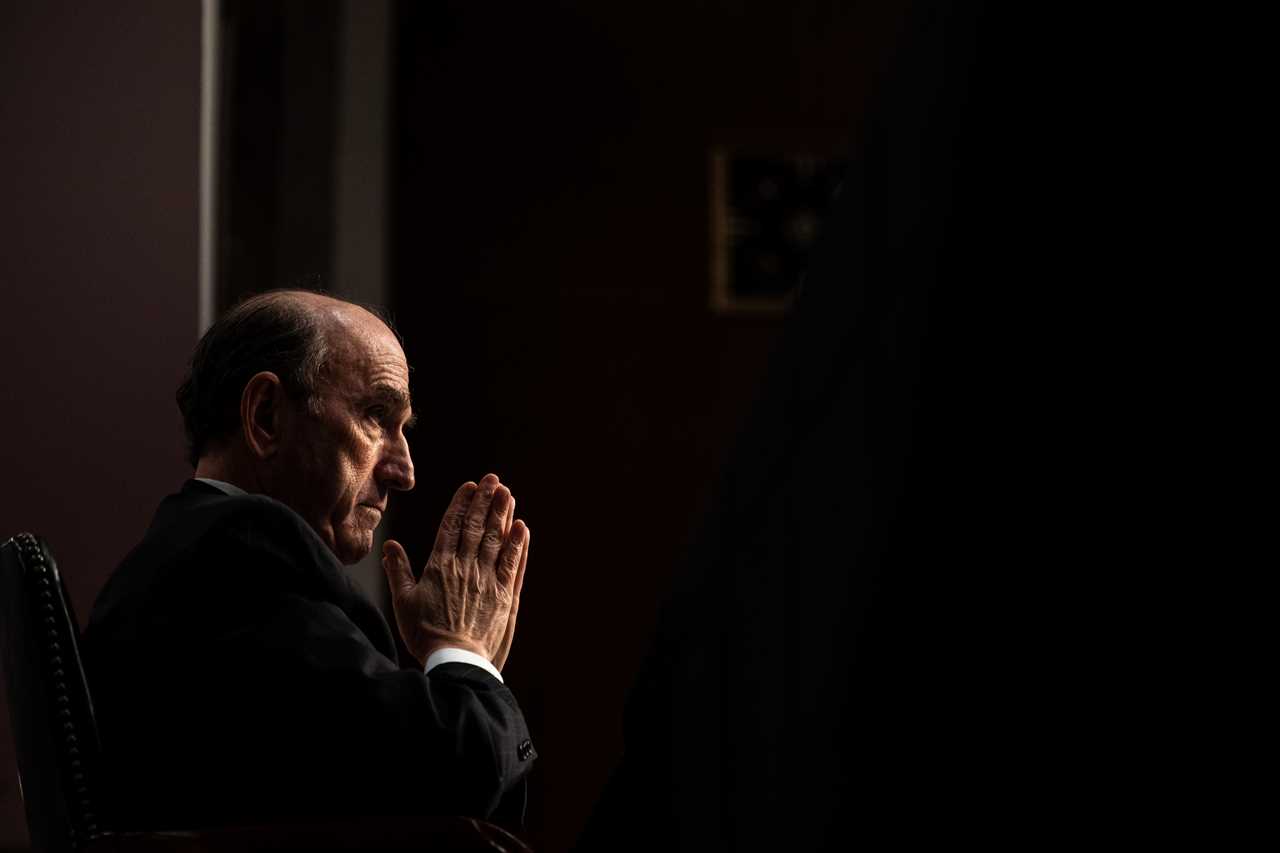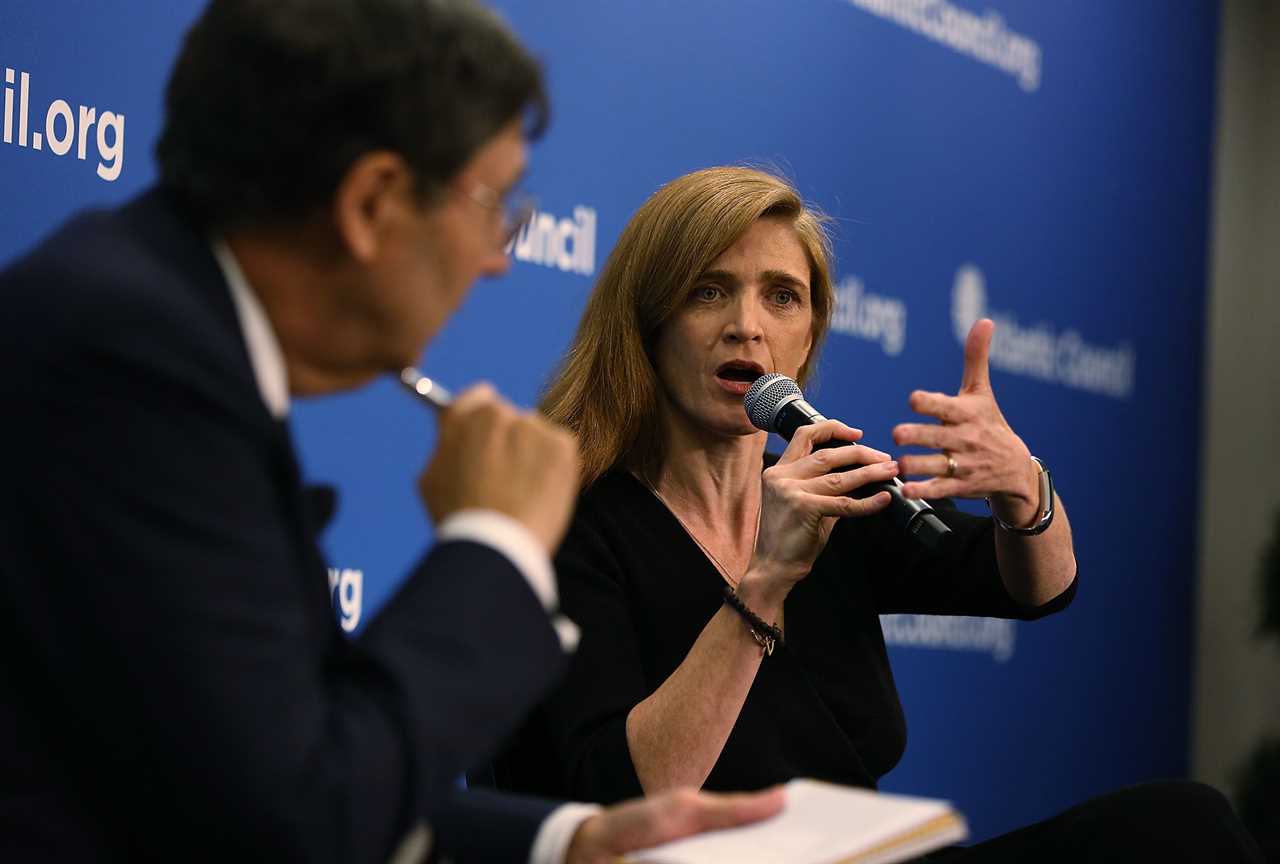
When Joe Biden was elected president, the Washington foreign policy establishment assumed that he would usher in a return to normalcy after the tumult of the Donald J. Trump era. But it didn’t quite turn out that way. Trump had put isolationism back on the American political map, or at least a less interventionist approach to the rest of the world, and Biden initially left it intact. He vexed the liberal hawks, not to mention unrepentant neocons, by reaching out to Russia and infuriated them by exiting Afghanistan. It seemed that his true focus was building back better at home, with foreign affairs a distinct afterthought.
Then came Russian President Vladimir Putin’s brutal invasion of Ukraine on Feb. 24. Almost overnight, Biden rediscovered his inner Cold Warrior and landed upon a fresh purpose for his presidency. Despite initial signs of restraint — and perhaps because of Ukraine’s surprising military success — Biden has shifted into a more pugnacious posture. The administration wants to leave Russia “weakened” from the war, in the words of Defense Secretary Lloyd Austin. The New York Times reports U.S. intelligence is helping Ukraine target Russian generals. And Biden is seeking $33 billion more in aid for Ukraine from Congress that would deliver huge amounts of weapons and equipment and help rebuild Ukraine’s industrial base. Ukraine is already a proxy war between the U.S. and Russia, but step-by-step, Biden is moving closer to a policy of trying to defeat Russia, or to put it more bluntly, to fuel regime change in Moscow.
It’s an approach that has some worried about the possibility of a nuclear confrontation. But for the Washington foreign policy establishment, or, in former Obama administration official Ben Rhodes’ more evocative term, the Blob, the battle over Ukraine has come as something of a deliverance. The Blob is composed of both Democrats and Republicans — a disparate group of elite think-tankers, lawmakers, journalists and others in official Washington — who coalesce around a hawkish foreign policy, championing the old-time gospel of American leadership on the world stage.
Russia’s aggression has allowed the Washington mandarins not simply to resuscitate their credo, but also to storm the beachheads of their own adversaries, where the realists and non-interventionists who stress the importance of prudence and caution and the perils of military adventurism have dominated the terrain for a decade or so. No longer. As Andrew J. Bacevich, who has led a one-man crusade against militarism abroad, put it in The Nation, the Washington elites are at it again: “Virtually overnight, the acolytes of American power were hailing the war in Ukraine as signaling the coming restoration of a global Pax Americana. As for Afghanistan: Fuhgettaboutit!”
Already the traditional, hawkish wing of the GOP is mobilizing to once more promote the idea of American supremacy overseas. On Monday, the National Review Institute, for example, plans to host a forum on foreign affairs at the National Press Club with the Reaganesque title “Recommitting To Peace Through Strength.” The speakers will include stalwart Republican hawks such as Sen. Tom Cotton, Rep. Mike Gallagher and Elliott Abrams. It’s intended as a counter-blast to the recent “Up From Chaos” conference at the Washington Marriott that featured J.D. Vance, Sen. Rand Paul, Michael Anton and others on the Trumpian right who are averse to foreign entanglements in Ukraine and elsewhere. Meanwhile, GOP Rep. Adam Kinzinger is proposing a bill to authorize Biden to deploy troops in Ukraine to restore its “territorial integrity” should Putin use chemical or nuclear weapons.

And as during and immediately after the Cold War, the push is bipartisan. Former Obama Defense Department official Evelyn Farkas, for example, has just been appointed executive director of the Washington-based McCain Institute. Farkas has declared, “We must not only condemn Russia’s illegal occupations of Ukraine and Georgia, but we must demand a withdrawal from both countries by a certain date and organize coalition forces willing to take action to enforce it.” She added, “Americans, with our European allies, must use our military to roll back Russians — even at risk of direct combat.” Sen. Chris Coons, a close Biden ally, has stated that America should contemplate “when we are willing to go the next step and to send not just arms but troops to the aid in defense of Ukraine.”
Another sign that the Blob is regrouping comes in the form of the regular hour-long phone meetings on Ukraine and Russia that the Biden administration has been conducting since February with leading Washington think-tanks, including the Brookings Institution, the Carnegie Endowment for International Peace, the Atlantic Council, the Center for European Policy Analysis (CEPA), and the German Marshall Fund. The briefers from the administration have included National Security Council official Eric Green and Defense Department official Laura K. Cooper.
What’s the aim of these sessions? According to one participant, it’s possible to ask pointed questions, but “the whole point is to carry water for the administration. They’re buttering up the think-tank community. They want it to defend them publicly. They send follow up emails that reinforce the cycle of affirmation.”
NSC official Amanda Ensour is responsible for email blasts to the participants that contain what is called “notable commentary” relating to Ukraine and Russia that fortifies the administration’s stances. These Washington think-tanks — in particular the Atlantic Council and CEPA — play a role in both influencing administration policy and the public perception of it. The Atlantic Council, for example, has a number of former ambassadors, including Alexander Vershbow, John Herbst and Daniel Fried, who are frequent public commentators about events in Russia and Ukraine and in contact with Biden administration officials at the NSC and State Department. In late December, the Atlantic Council issued a statement signed by establishment worthies such as former Clinton administration Deputy Secretary of State Strobe Talbott demanding that the Biden administration bolster American forces in Europe in the face of the threat of a Russian invasion of Ukraine. Since then, it has been at the forefront of pushing Biden to move faster and harder on arming Ukraine with heavy weaponry against Russia, an approach that the administration has begun to embrace.
Herbst explained to me, “The administration still needs to do more. It’s moved faster over the past several weeks because of Defense Secretary Lloyd Austin and Gen. Mark Milley. That’s been essential.” He added, “we are policy people, and, yes, we have been in touch with the administration, leading the charge publicly on this. We also get a lot of interest from Congress on this.”
The driving force behind many of the opponents of Russian revanchism is a desire to return to the 1990s, when America stood tall and proud in the face of tyranny, before it all became discredited during the George W. Bush administration’s chimerical crusade to transform the Middle East into a bastion of democracy. Now, as Putin flounders in Ukraine, the Blob is becoming stronger than ever as it senses victory over Moscow.
Nothing symbolized the enduring sway of the Blob more vividly than the memorial service at the Washington National Cathedral last week for former Secretary of State Madeleine Albright. As U.N. ambassador during President Bill Clinton’s first term, Albright was a thorn in the side of then-Secretary of State Warren Christopher and then-national security adviser Tony Lake, both of whom blanched at the thought of American military intervention in the Balkans to stop Slobodan Milošević's war of ethnic cleansing. In his impassioned eulogy, Biden drew an implicit parallel with the 1990s, when the democracy crusade flourished in the Balkans against Milošević, and today, when a renewed push to defend freedom is taking place in Ukraine against Putin.
“It was not lost on me that Madeleine was a big part of the reason NATO was still strong and galvanized, as it is today,” Biden said. He went on to call her a “nexus of the foreign policy community.”
Albright was a charter member of the Washington establishment — a former professor at Georgetown University, an aide to former National Security Adviser Zbigniew Brzezinski during the Carter administration, and a former wife of Joseph Albright, a scion of the Medill-Patterson newspaper dynasty. And the establishment came out in full force for her ceremony. The contrast with an earlier service at the Washington National Cathedral, in September 2018, for John McCain, an inveterate cold warrior, was instructive. McCain had expressly decreed that the sitting president, Trump, should not be invited. At the service, his daughter Meghan wept that it marked the “passing of American greatness.”

Albright’s ceremony, which was attended by numerous foreign democrats, including Belarusian opposition leader Svetlana Tikhanovskaya, who met everyone from USAID Director Samantha Power to Secretary of State Antony Blinken during her trip, suggests a different outcome. The crusading vision for democracy abroad that Albright represented wasn’t being interred. It appeared more vigorous than ever. The new Polish ambassador to Washington, Marek Magierowski, who attended the ceremony, told me that it evinced the vitality “not only of pro-democracy thinking, but also pro-NATO and pro-collective security.”
If the 1990s have served as a touchstone for the Washington foreign policy establishment — a singular moment when, as James P. Rubin, a former Albright spokesperson, recently recalled, America was “respected, admired and feared around the world” — then the assembled 1,400 guests demonstrated that pretty much everyone in Washington foreign policy circles wanted to associate themselves with her. It was Albright, after all, who predicted in her last column for the New York Times on Feb. 23 that entering Ukraine would be a colossal blunder: “Instead of paving Russia’s path to greatness, invading Ukraine would ensure Mr. Putin’s infamy by leaving his country diplomatically isolated, economically crippled and strategically vulnerable in the face of a stronger, more united Western alliance.”
She was right. The war in Ukraine has not only revived NATO but also the broader impulses that she represented. After playing defense ever since the misbegotten wars in Iraq and Afghanistan, the “acolytes of American power” aren’t just winning. They’ve won.
----------------------------------------
By: Jacob Heilbrunn
Title: How Biden is Getting the Foreign-Policy Blob on His Side
Sourced From: www.politico.com/news/magazine/2022/05/06/biden-foreign-policy-blob-00030443
Published Date: Fri, 06 May 2022 03:30:00 EST
Did you miss our previous article...
https://consumernewsnetwork.com/politics-us/meet-the-houses-worst-boss-amid-chaos-over-mistreatment-of-capitol-staff






